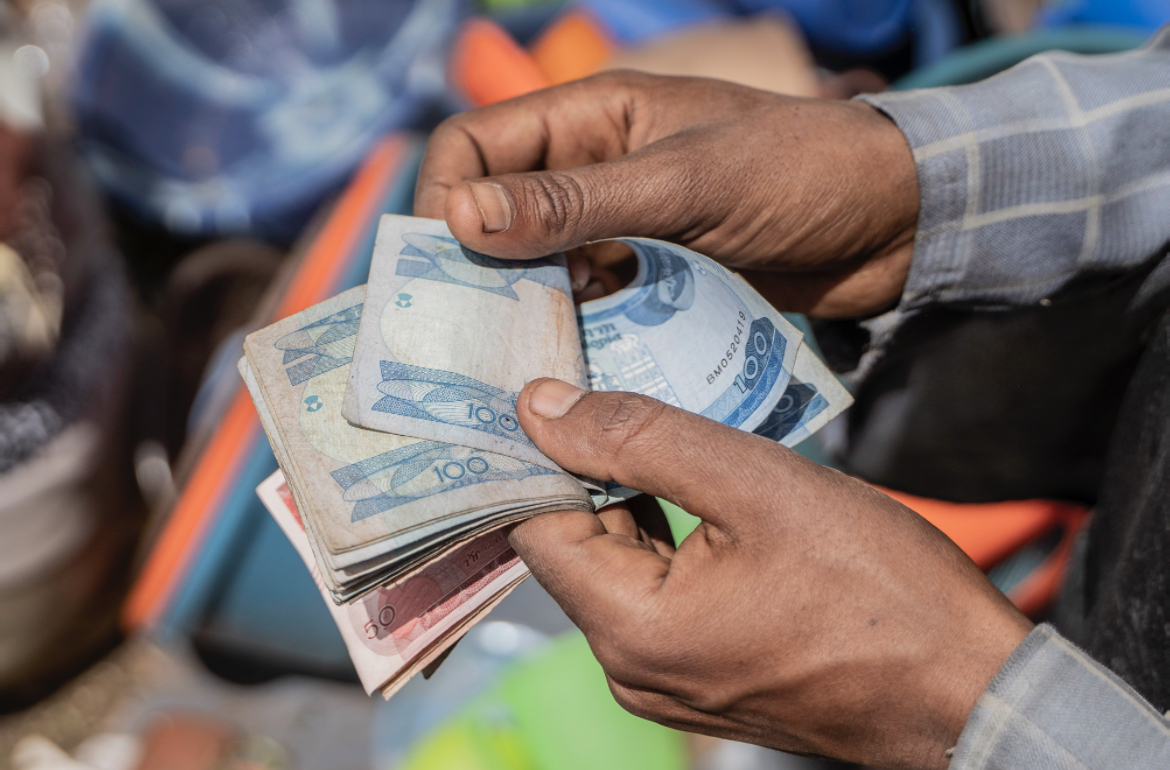Since the 2018 Eritrea-Ethiopia peace treaty, nothing has been peaceful in Ethiopia. Activist Vanessa Tsehay, as well as many others, were quick to question the validity of Abiy Ahmed’s Noble Peace Prize.
“The uncomfortable reality is that, in addition to the obvious financial benefits a peace agreement would lead to, Abiy and Afwerki came together under the guise of peace to isolate the TPLF, which scored political points for the both of them. The TPLF and Eritrean government remain enemies and the Eritrean-Ethiopian border is not demarcated. There is still no peace between the groups who initiated the original border conflict.” – 2019 CNN Article
The genicidal war on Tigray caused widespread disruption to economic activities, particularly in the Tigray region, which affected agricultural production, trade, transport, and local businesses.
The supply chain constraints and instability contributed to slower economic growth.
The Ethiopian government’s military spending increased substantially due to the prolonged conflict, diverting funds from essential economic development projects and public services.
The heightened military spending and economic disruptions added to Ethiopia’s debt burden, increasing the risk of default, which came to fruition in December of 2023 when it was announced Ethiopia had defaulted on its international government bond (USD 1 billion).
Credit rating agencies downgraded Ethiopia’s sovereign credit rating due to the increased risks associated with the conflict. For example, agencies like Moody’s, S&P, and Fitch cited concerns over political stability, economic disruptions, and increased debt levels.
Reduced creditworthiness made Ethiopia’s access to international financial markets more difficult and expensive. Higher borrowing costs and reduced investor confidence can hinder the government’s ability to finance infrastructure and development projects.
How the PFDJ Hawala System Devalued the Ethiopian Birr
The bleeding didn’t stop there. Once Abiy started to feel the economic side effects of the war, he slowly began to pull back his troops out of Tigray. A decision that Isaias and the Fano militia were unhappy about, leading to the PFDJ strategically and systemically devaluing the Ethiopian birr via the Hawala system.
Hawala operates outside the formal financial sector and undermines the effectiveness of a country’s monetary policy. Central banks cannot accurately track money flow or enforce anti-money laundering laws.
The prevalence of the Hawala system can create a parallel market for foreign exchange, leading to discrepancies between official and black market exchange rates.
Though Ethiopia’s official exchange rate was set at 54:1 birr to USD, the black market exchanged at a rate of 120:1 birr to USD.
PFDJ strategically devalued the local currency, causing the demand for foreign currencies to spike. The devaluation also fueled inflation, increasing prices in the local economy and making life difficult for everyday people.

Ethiopia’s New Economic Reforms
On July 28, Abiy Ahmed announced Ethiopia’s economic reform plans, which followed the Ethiopian National Bank’s new monetary policy released on July 9. The country released a series of reforms that were closely monitored and guided by the IMF, and today, the IMF and Ethiopia have agreed to a USD 3.4 billion bailout.
Among the changes was the implementation of quantitative easing (QE) and quantitative tightening (QT) to control the country’s inflation and monetary policy. This change closely aligns with the US’s central bank monetary policy.
Another requisite for the IMF debt restructuring was for Ethiopia’s central bank to float and devalue the birr from 54:1 USD to 74:1 and hold open market operations (OMO) to add and remove liquidity from the banking system.
The deliberate, “good faith” currency devaluation was preceded by the implementation of a 15% national bank interest rate and an opening up of the Ethiopian Stock Exchange (ESX), which is expected to help attract foreign investment to Ethiopia’s assets and government bonds.
Press Release: The National Bank of Ethiopia Announces the Launch of a New Monetary Policy Framework
— National Bank of Ethiopia (@NBEthiopia) July 9, 2024
Watch it here: https://t.co/FzurplzN6z pic.twitter.com/Exx9C5R85J
NBE’s first-ever Open Market Operations auction was successfully held today, following the announcement of a new Monetary Policy Framework earlier this week. pic.twitter.com/sXRrb6WDVG
— National Bank of Ethiopia (@NBEthiopia) July 11, 2024
These were the first step requirements and a sign of “good faith” by Ethiopia to the IMF, who wanted to see the country’s currency devalued before agreeing to a loan restructuring program.
These changes however, though attractive for foreign investment, make it more difficult for locals, Eritreans and Ethiopians, to borrow and criples or constrains their ability to grow their local businesses.
These changes may have also influenced Isaias Afwerki’s decision to cancel all outgoing and incoming flights between Eritrea and Ethiopia.
Mission accomplished?


